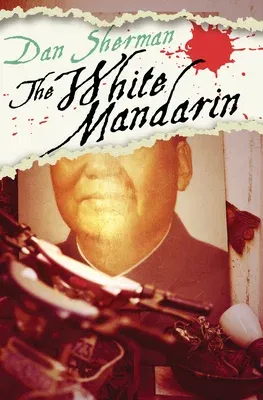John Polly enters Shanghai in 1948 on a muggy, velvet evening, just in
time for the Communist takeover of China. It marks only his fourth month
in America's newly formed Central Intelligence Agency. Over the next two
decades, Polly will become The White Mandarin, a double agent buried so
deep within the inner circle of the People's Republic as to shape the
futures of both that nation and his own. Dan Sherman's intricate,
superbly crafted spy thriller follows Polly as he walks a dangerous
tightrope of intrigue and suspense. As China rebuilds itself, Polly
attempts to start a family in the intersection between the American
intelligence system and the Asian drug trade. Can Polly keep his wife
and daughter safe? Can he keep track of the shifting stories and
changing allegiances in the CIA? Will his emotion get in the way of his
mission? Only pages into this stunning novel, readers will easily
understand why Sherman has earned comparison to the great John le Carré
and Graham Greene. It is both a story of very personal love and loss,
and an insightful history of China between the rise of Chairman Mao and
the 1972 visit by President Nixon. Anyone looking to understand the
China of yesterday and today-its power, its flaws, its beauty-need look
no further than The White Mandarin. Dan Sherman has written a handful of
popular thrillers, starting with such near-contemporary successes as The
White Mandarin (1982, set in China from 1949 through the 1960s) and The
Prince of Berlin (1983, starting at the end of World War II and
continuing on into the 1960s) and then moving backward through history
to the era of World War I (The Man Who Loved Mata Hari, 1985) and then
to the period of the American Revolution (The Traitor, 1987), about the
discovery of a mole within the highest command levels of George
Washington's army of revolution. His other novels include The Mole,
Riddle, Swann, and King Jaguar.

